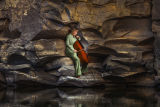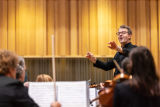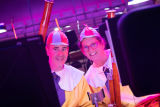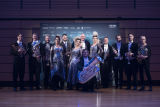Taking 5 with Elena Kats-Chernin
Blog ·
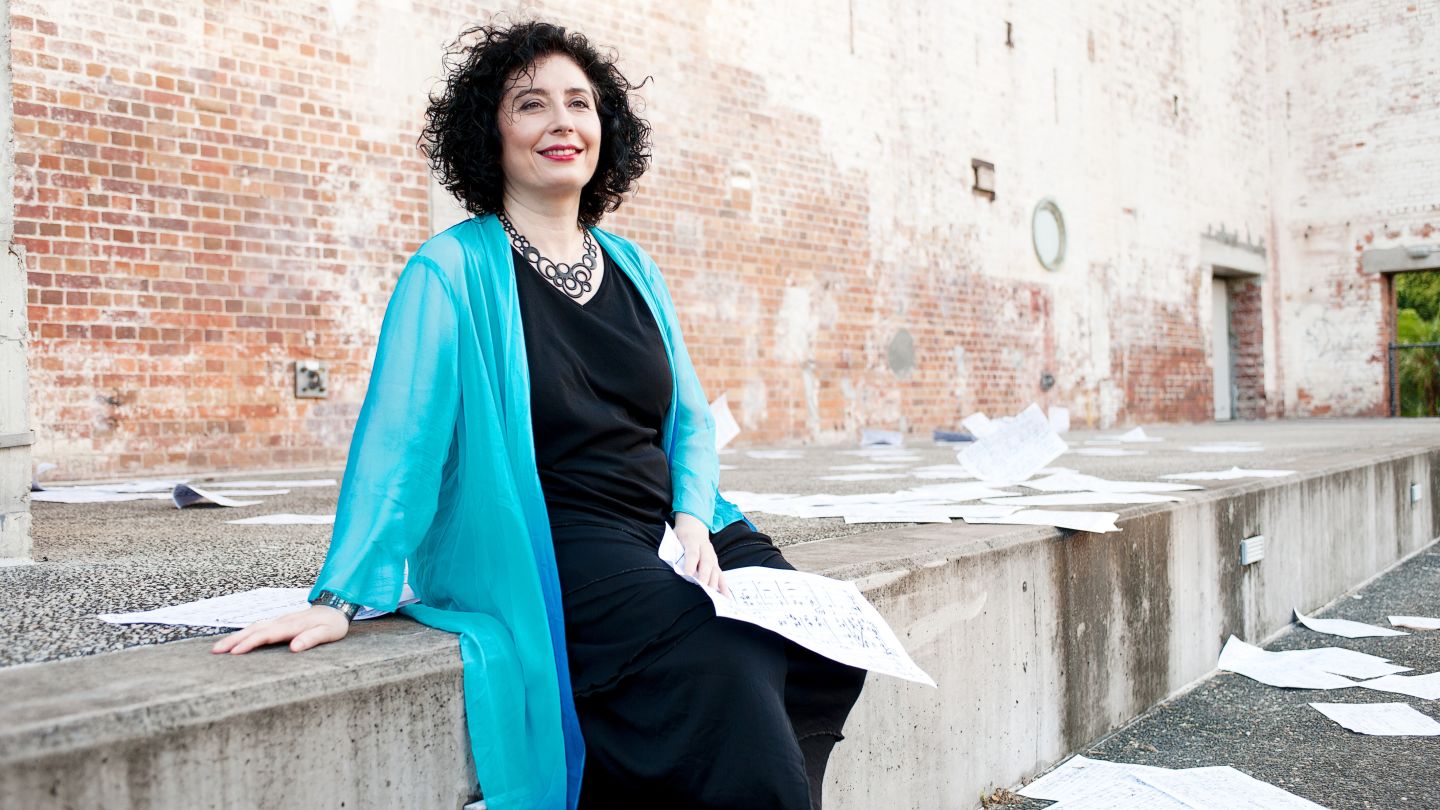
Our 2011 Composer-in-Residence, known for her prolific and diverse output, Elena Kats-Chernin has been creating new works since the age of five. Having written six operas, two piano concertos, music for ballet, film scores and many other works, Elena is a force in the world of classical music. We sat down with Elena to talk her musical journey, her compositional style, and putting pen to paper when creativity strikes.
Tell us about how you became a composer?
I was brought up in the former USSR in a town on the Volga river called Yaroslavl, not too far from Moscow. I had a piano teacher from when I was four years old. I couldn’t reach the floor and there were many very thick books under my feet to help me feel stable on my chair. One of those books was a biography of Chopin and, when I was not at the piano, I loved glancing at the book pages, mainly marvelling at the pictures (this was before I could read), and later I loved reading the stories about Chopin and Georges Sand.
My favourite thing to do was to sit at the piano and improvise for hours. I would forget everything around me and just play and play. Sometimes sounds would form into a construction resembling a music piece and from the age of 5 I was able to write them down. The first piece I composed properly was a lullaby, much later renamed Lullaby for Nick, the youngest of my three sons. In my childhood I always had to play it for all our dinner guests and I got really sick of it over time. I only revived this piece when Nick was twenty years old (too old for lullabies), he really liked it and was thrilled to have it named after him.
For many years I’ve used pencil and music manuscript paper to compose. These days I use a thick black pen, rather than a pencil, as I like less resistance from the paper. To become a composer was my dream. I never wanted to do anything else ever since I was very young.
What’s your compositional process like? Does an idea strike and you have to jot it down, or do you methodically work an idea into being?
I compose at the piano while improvising. There is a lot of wild unintelligible scribbling going on, many ideas pass throughout the day, but things don’t always ‘stick’. Often an idea is just a step towards a much better idea. Sometimes a fragment appears, based on two or three notes and I twist it around and change the rhythm or the order of the notes, in a rotating kind of way, trying all different possibilities and sometimes I accidentally strike a note which sounds really interesting in the context of the current material.
Often imagining a concert situation for a particular piece really helps as I try to think “what would be the first thing I would want to hear if I was sitting in the audience right now?” and “what would be the next thing or the last?” I love the notion of an empty page, it excites me to see an untouched sheet waiting to be filled with notes. The anticipation of what will be written today never loses its wonder.
How would you describe your compositional style and sound?
My compositional style or sound is varied. I find it difficult to define. It always delights me when a friend calls up and tells me that they were just listening to a piece of music on the radio and were wondering what it was and were thinking that it sounded like my music and then they found out that yes, it was my piece. That is the kind of thing that a composer wants, that the language of the piece is recognisable. I like to create character pieces, with unusual harmonic shifts and melodies that want to be repeated or transformed. Often, however, it is the rhythm that defines a work, in context with the other elements. For example, the piece like ‘Eliza Aria’ from my Wild Swans Concert Suite would not at all be interesting if the syncopated rhythm was not part of its main features.
In the album ‘Unsent Love Letters’ inspired by Eric Satie’s life and music, I tried to stay away from strong melodies and the aim in this project was to create an atmosphere of calm and longing. Sometimes the word ‘abstract’ was floating in my head while composing this collection.
On occasions I write a piece in opposition to what I have just written and other times I want to further explore some of the instrumental combinations or chords in the next work. This really depends on the work. A different process takes place while working on a commissioned work or my own project. For example, sometimes a commissioner would say that they like a particular piece of mine and might like something similar, though not the same. Or a piece needs to be of a celebratory kind, because it is written for someone’s birthday.
I write short score - a piano sketch - of the whole work first, so that I have an overview of where the build-up of tension is, where the climactic point is, where the calm moments are, and if there is a need for more contrast or if there is too much material already. That is much easier to judge on a piano score, than on an orchestral score. Once the full score with its many instrumental lines is there, it is extremely complex and unwieldy to cut or extend or even change keys, for example, therefore it is also prone to unforeseen mistakes.
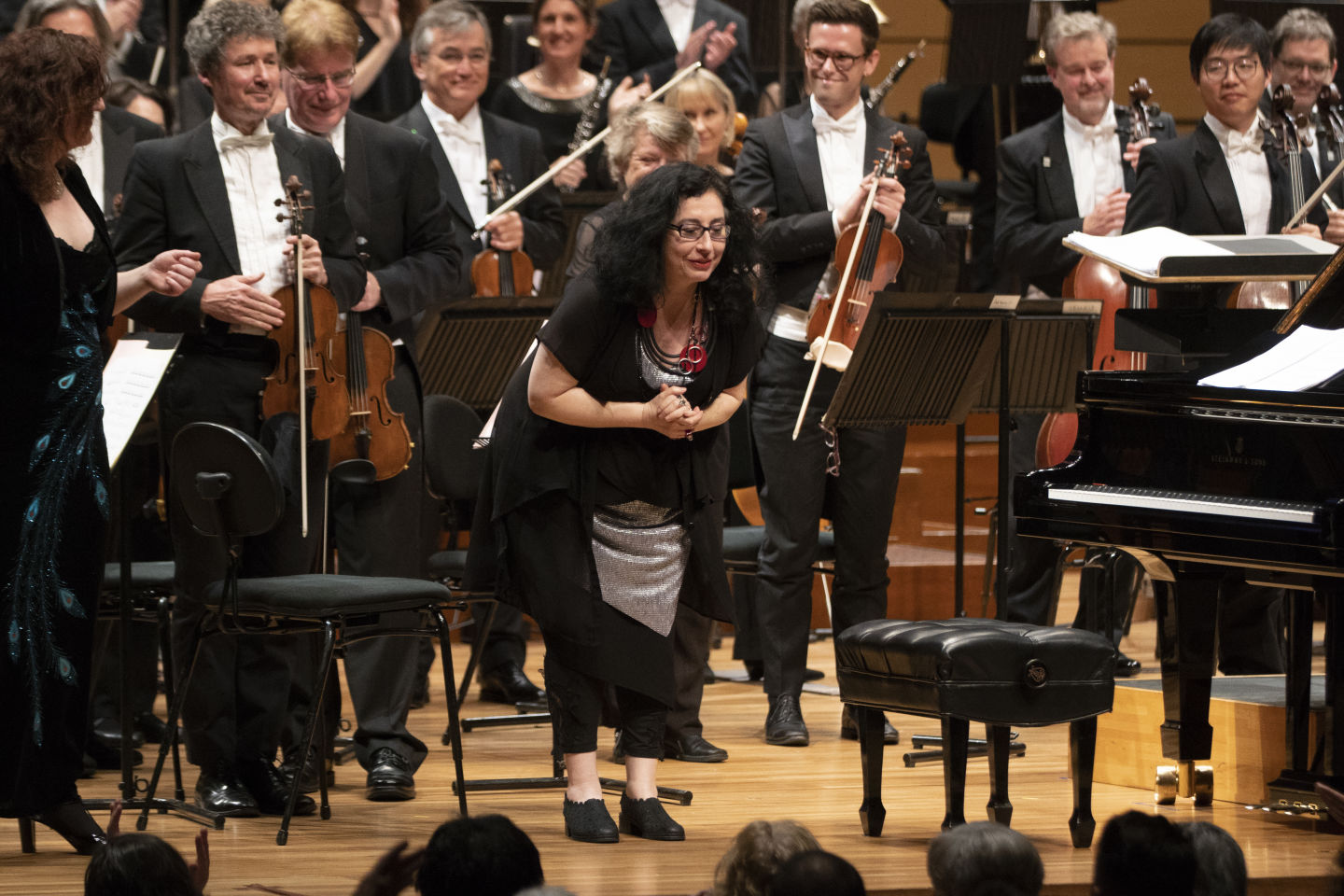
Which other composers inspire and influence you?
In my childhood I worshipped Rachmaninov and his piano concertos and preludes, and Prokofiev with his incredible bright orchestrations in his ballets, the Classical Symphony and Peter and the Wolf.
As I grew into my teenage years, my absolute favourites became Bach and Ravel. Later I got very interested in Stockhausen and my teacher Helmut Lachenmann with his intensely radical approach to the whole concept of music creation. He motivated and challenged his students to question the usual composing solutions. My homework was to create small pieces according to the tasks he set out for me. What became evident is that the initial material would become the most important vehicle for the rest of the work. The next step was to find ways of upturning material, how and when to disrupt textures, where it might lead to, and to consider the aim of the overall piece. The philosophy behind the piece is very important to Lachenmann and he instilled that inquisitiveness in his students forever.
What have been the most challenging and most rewarding moments of your career so far?
There is always a moment (which can last for days!) of trepidation and the niggling thought… what if I just got away with it up till now, and in fact I actually can’t compose at all… Then the idea strikes, usually during continuous improvisations on the piano. And then I feel incredibly relieved that maybe I am not a fake after all… but there is a constant self-dialogue going between ‘yes that is great material and no, it is all hopelessly stupid’.
The most rewarding moments are when at the end of the very first rehearsal the piece gets played in its entirety and the excitement sets in about the upcoming premiere which is the next most rewarding moment, when the audience joins in the experience of hearing a piece being born. The thoughts of gratitude flood through, of the chances I received to write works and of the fabulous musicians putting their talents, skills and valuable time into learning my work. When a piece for orchestra gets played, I forever appreciate the puzzle pieces that people behind the scenes have to connect in order for the orchestra’s smooth daily high functioning, all in the aim that on the day of the performance or recording this incredible machine can shine.
The most challenging time is during rehearsals for an opera when a stage director needs an extra three minutes for a scene or, more dramatically, a whole new scene, composed. There is usually very little time left (often just a few weeks). I am at rehearsals 6-8 hours a day responding to daily adjustments and changes, so I compose extra material in the evenings. The challenge is to eat and sleep. The new fresh material needs to be singable and easy to memorise. The next challenge is to send my handwritten material to my copyist and hope that they have time to typeset it, then I edit, and then I provide typeset copies to all the pianists involved in the production as well as all technicians, assistants, costume, set, lighting, designers. Even if I add or cut two bars from a scene, such a change affects everything from costume changes, to lighting cues, to the stage manager, everyone having to notate it in their score. If you miss informing just one person of a change in this clockwork-like construction, there will be much confusion and discussion eating into valuable stage time on the day of the first run through. The next step is to orchestrate approximately thirty pages at breakneck speed and, once typeset and edited, the conductor also needs to have it and might give feedback - even practical things like which mutes does a trumpet need, for example. It is always even more complex when I am working in Berlin and the copyist is in Sydney, so we swap files at different time zones. I send pages in the evening from Europe and get a file back in the morning from Sydney. So, while it works actually quite well, the nerves usually get quite stretched in the process.
Having said all above, I love this adrenalin-laden work process and nothing compares to a premiere of a work that composer puts heart and soul and much time into. My most memorable curtain call was at the end of Monteverdi Trilogy in September 2012, in Berlin Komische Oper, under the direction of Barrie Kosky. There were perhaps more than 200 people on stage, including all the singers, dancers, musicians, the creative team, at the end of a 12-hour Marathon, which included Orpheus, Odysseus, Poppea, the three operas that I adapted for the orchestra from Monteverdi’s original vocal line and figured bass, a project that took three years to complete.
A composer’s life is never boring or lonely. There is always manuscript paper to keep me company.
